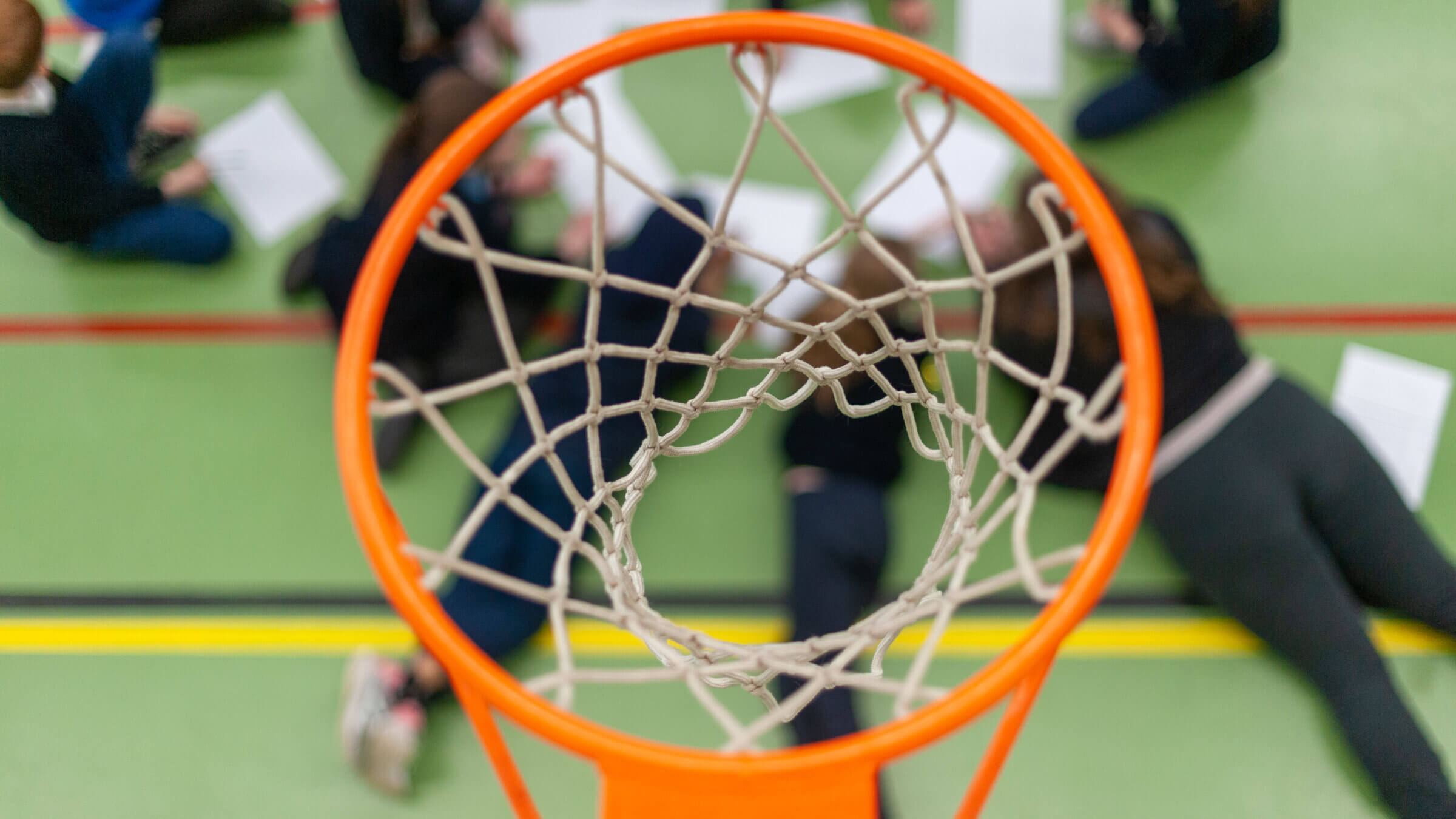The Ireland-Israel women’s basketball antisemitism controversy, explained
How a qualifying match for the EuroBasket tournament became the latest battleground of war-driven politics

Photo by Stephen Wilson/Bloomberg via Getty Images
It began as a basketball game. It turned into an international controversy. It ended in a rout.
A qualifying match between the Israeli and Irish national women’s basketball teams became the latest nexus of sports and war-driven politics this week after an Israeli player said in a pre-game interview that her opponents were antisemitic.
Irish players responded by refusing to face the Israeli team during pregame introductions. After Israel, ranked 49th internationally, beat 80th-ranked Ireland by 30 points, the Irish women walked off court without shaking the Israelis’ hands.
Israeli coach Sharon Drucker said afterwards he had never seen anything like it in his career.
“They received their punishment today,” Drucker said of the Irish athletes. “Sports need to bring together and bridge. They chose a side without thinking.”
Irish basketball team refuse to shake hands with Israeli team or, line-up with them at centre court for the national anthems, in protest at the genocide in Gaza and inflammatory and untrue comments made by Israeli players and staff about the Irish players pic.twitter.com/Ufyolyu1jv
— Markie 🇮🇪 (@MarkAgitprop) February 8, 2024
The 87-57 game, played Thursday evening behind closed doors in Riga, Latvia, was Israel’s first qualifying match for the 2025 Women’s EuroBasket, sponsored by the International Basketball Federation. France and Latvia round out Israel and Ireland’s group; they each will play each other twice over the coming months, and the winner will advance to the tourney, co-hosted next summer by Germany, Greece, Italy and the Czech Republic. (Four second-place finishers among the eight groups also advance.)
The controversy began Tuesday when Dor Saar, an Israeli guard poised to make her international debut, said in an article published on the Israeli Basketball Federation website that the game carried extra significance because of the opponents’ politics.
“It’s known that they’re quite antisemitic, and it’s not a secret,” Saar said. “And maybe because of that it’s expected to be an intense game. We have to show that we’re better than them and win. We’re talking about this between us. We know that they don’t like us and we’re going to leave it all on the floor — always and especially this game.”
Saar did not give specific examples. She made the comments in Hebrew, but they were republished Wednesday in Irish media.
Ireland’s governing body for basketball issued a statement Wednesday calling the comments “both inflammatory and wholly inaccurate.”
“Basketball Ireland would refute these allegations towards our players in the strongest possible terms,” the statement said, “and we have raised this matter with FIBA Europe.”
After Thursday’s loss, Ireland coach James Weldon praised his players’ “incredible maturity in how they handled a very pressured week.”
“We didn’t engage in the pre-match activities as a direct result of those unwarranted and unacceptable comments from the Israeli camp about our players,” he added. “It was hugely disappointing. We came here for a game of basketball, we wanted to win, but didn’t come out on the right side of the result on this occasion.”
The game was originally scheduled for Tel Aviv in November, but was rescheduled due to travel restrictions related to the Israel-Hamas war. Israel originally suggested playing in Dublin, but, according to an Irish news report, were told “that the safety of their players couldn’t be guaranteed.”
FIBA settled on Riga as a neutral site, and the teams played with no fans in attendance due to security concerns.
Even before Saar’s remarks, Ireland’s team had come under some pressure domestically to boycott the match. The team opted to play rather than face a potential fine of 80,000-euros. A rematch is scheduled for Nov. 10, 2024; skipping it could result in an even steeper 100,000-euro fine and a five-year ban from European competition.
Israeli athletes have been antagonized during international competition on several occasions since the Israel-Hamas war began.
An Israeli footballer who plays in Turkey was arrested in January after celebrating a goal by displaying “100 days 7.10” on his wristband. The International Ice Hockey Federation removed the Israeli team from its competitions “until the safety and well-being of all participants (including Israeli participants) can be assured.” Cricket South Africa demoted the Jewish captain of its under-19 team before the Cricket World Cup.
And on Thursday, the 12 nations of the West Asian Football Federation — which competes in Europe and includes Palestine — called on FIFA to ban Israel from international soccer competition, as it did for Russia after the country’s invasion of Ukraine. (UEFA, European’s soccer governing body, responded by backing Israel.)




















